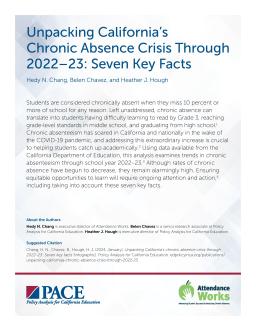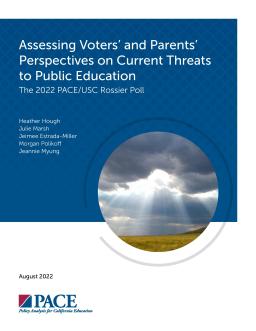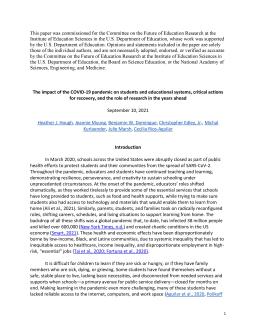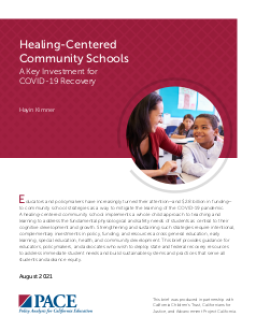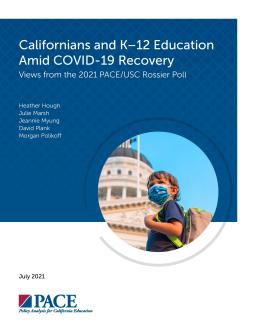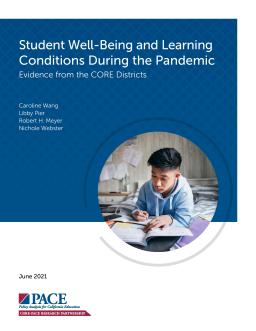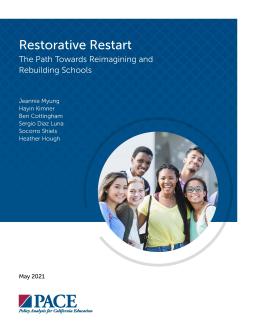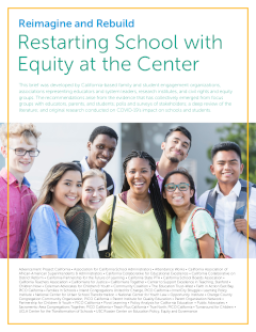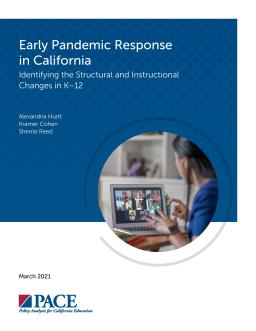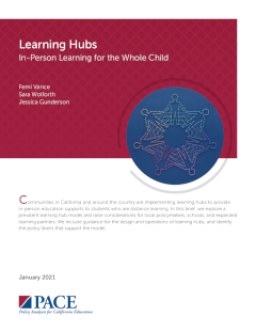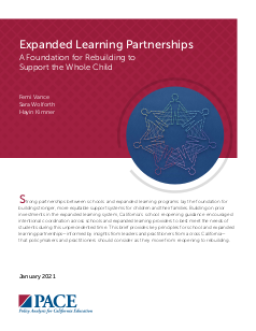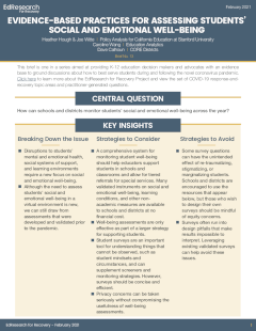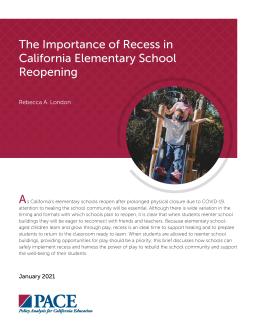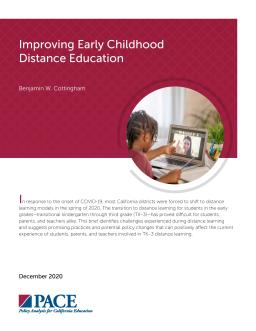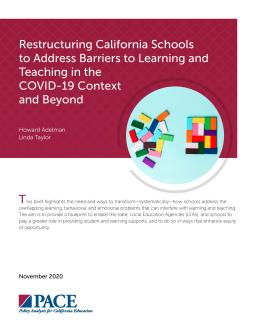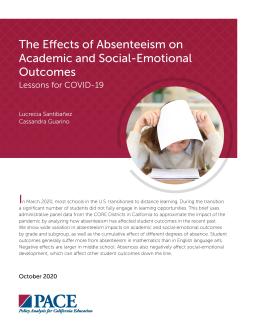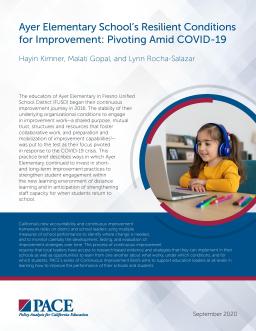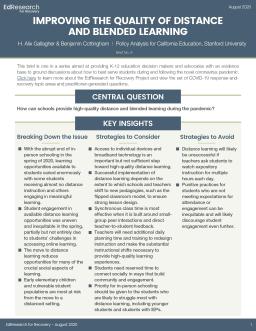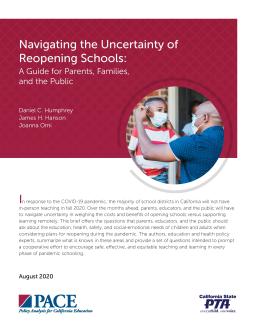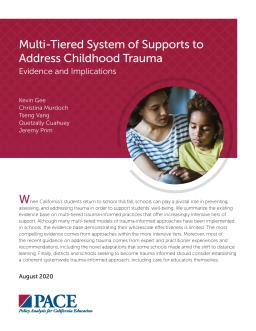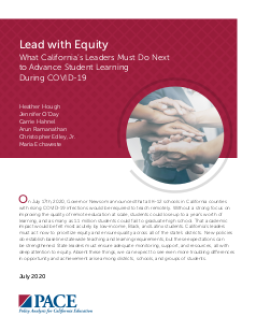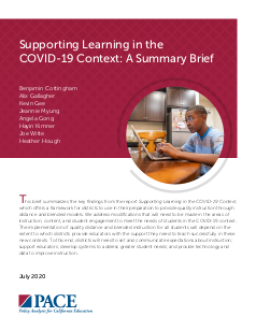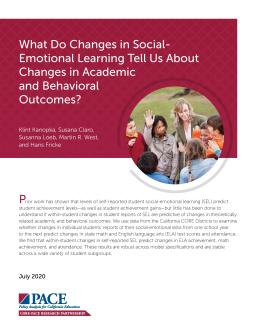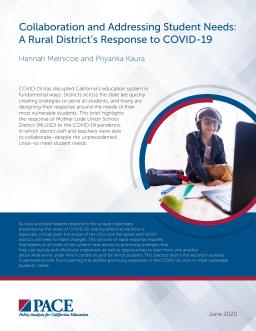Summary
Chronic absenteeism has soared in California and nationally in the wake of the COVID-19 pandemic, and addressing this extraordinary increase is crucial to helping students catch up academically. Using data available from the California Department of Education, this analysis examines trends in chronic absenteeism through school year 2022–23.3 Although rates of chronic absence have begun to decrease, they remain alarmingly high. Ensuring equitable opportunities to learn will require ongoing attention and action, including taking into account these seven key facts.
Summary
The 2021-22 academic year in California was challenging for public education due to eight issues that threaten student learning, schools, and public education itself, including gun violence, declining enrollment, and long-term funding inadequacy. These issues also have a disproportionate impact on marginalized communities and highlight long-standing systemic inequities. In July 2022, PACE and USC Rossier School of Education conducted a poll of California voters to determine their views and priorities on public education.
Summary
IES issued a report on the future of education research at the National Centers for Education Research and Special Education Research. The report identifies issues, details new methods and research investments needed in the future. PACE produced a paper to synthesize existing evidence in the field and frame recommendations. Public input and outside experts were also consulted.
Summary
Summary
Summary
Summary
The COVID-19 pandemic has affected all students; however, its impact has been particularly devastating for students of color, students from low-income families, English learners, and other marginalized children and youth. As transmission rates decline and vaccination rates increase in California, many are eager to return to normalcy, but we must all recognize that even the prepandemic normal was not working for all students. The 2021–22 school year, therefore, constitutes a critical opportunity for schools to offer students, families, and educators a restorative restart.
Summary
This brief was developed by California-based family and student engagement organizations, associations representing educators and system leaders, research institutes, and civil rights and equity groups. The recommendations arise from the evidence that has collectively emerged from focus groups with educators, parents, and students; polls and surveys of stakeholders; a deep review of the literature; and original research conducted on COVID-19’s impact on schools and students.
Summary
Summary
Summary
Summary
Summary
Summary
Summary
Summary
Summary
Summary
Summary
Summary
This brief summarizes the current evidence base on multi-tiered trauma-informed practices in schools to prevent, assess, and address trauma in students. Although the effectiveness of trauma-informed approaches is limited, the most compelling evidence comes from the more intensive tiers. Recent guidance on addressing trauma comes from expert and practitioner experiences and recommendations, including adaptations made during distance learning. Schools should establish a system-wide trauma-informed approach that includes care for educators themselves.
Summary
The brief argues that community school strategies can help address the social and learning impacts of COVID-19, by reforming underlying classroom, school, and district behaviors and systems that prevent student-centered collaboration, partnership, and teaching. The focus should be on student-centered learning, integrated teacher and student supports, collaborative leadership and practice, and the centrality of family and student relationships. The brief encourages all schools to adopt a community school approach, which can serve as a sustainable and successful investment.
Summary
Summary
This article provides 10 recommendations based on the PACE report to help educators and district leaders provide high-quality instruction through distance and blended learning models in the 2020-21 school year. Despite the challenges of COVID-19, research can guide decisions about student learning and engagement. These recommendations can be used as a framework to prioritize quality instruction.
